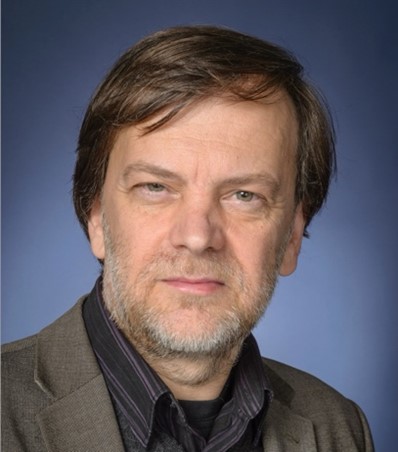Keynote Speeches
Keynote Speech I
Sustainable Artificial Intelligence Through Neuromorphic Technologies
Robert Kozma
The University of Memphis, TN, USA
Obuda University, Budapest, Hungary
Cutting-edge AI, AGI, ChatGPT and other advanced computational technologies demonstrate outstanding performance in many important tasks requiring intelligent data processing under well-known conditions, supported by massive computational resources and big data. However, the performance of these systems may drastically deteriorate when the data are perturbed, or the environment dynamically changes, either due to natural effects or caused by man-made disturbances and adversarial effects, possibly due to malicious actors. A neuromorphic perspective can provide crucial support under such demanding conditions. Human brains are efficient devices using 20W power (just like a light bulb!), which is many orders of magnitudes (OOM), less than the power consumption of today's supercomputers requiring MWs of power to solve specific learning tasks in an innovative way. This means a million times less power consumption in brains then in today's supercomputer clouds. Brain's energy management is the ultimate manifestation of embodiment and situated intelligence.
This talk provides key insights from brain studies to address the challenges to intelligent systems today. It introduces brain-inspired engineering designs combing the benefits of advanced AI/AGI and neuromorphic technologies, combining spiking neural networks and deep Q reinforcement learning. Spatio-temporal oscillations help developing novel pattern-based computational and hardware implementations. Applications include intelligent control and decision making, autonomy, and brain-computer interfaces. These neuromorphic technologies provide drastic improvement in using resources, including energy, data, and computing, in the style of the brains, establishing a path towards sustainable AI.
Biosketch
 Robert Kozma
IEEE Fellow, INNS Fellow. Ph.D. in Applied Physics (1992), Delft University of Technology, The Netherlands. He has MSc in mathematics from Eotvos University, Budapest, Hungary, and in power engineering from Moscow Energy Institute, Russia. He has held faculty positions at the University of California at Berkeley, USA; Otago University, Dunedin, New Zealand; Tohoku University, Sendai, Japan. He has been Professor of Computer Science and Mathematics at University of Memphis since 2000, where he is the founding Director of the FedEx Center for Large-Scale Intelligent Optimization & Networks. Past affiliations with US Air Force Research Laboratory; NASA Jet Propulsion Lab; Lawrence Berkeley Lab; Sarnoff Co., Princeton; U. Massachusetts, Amherst. He has 9 book volumes, around 400 papers, and 3 patents. Dr. Kozma has been the President of the International Neural Network Society (INNS), served on the Board of Governors (BOG) of the IEEE SMC Society, the AdCom of IEEE CIS, and BOG of INNS. He is EIC of IEEE Transactions on SMC: Systems. He is recipient of INNS Dennis Gabor Award.
Robert Kozma
IEEE Fellow, INNS Fellow. Ph.D. in Applied Physics (1992), Delft University of Technology, The Netherlands. He has MSc in mathematics from Eotvos University, Budapest, Hungary, and in power engineering from Moscow Energy Institute, Russia. He has held faculty positions at the University of California at Berkeley, USA; Otago University, Dunedin, New Zealand; Tohoku University, Sendai, Japan. He has been Professor of Computer Science and Mathematics at University of Memphis since 2000, where he is the founding Director of the FedEx Center for Large-Scale Intelligent Optimization & Networks. Past affiliations with US Air Force Research Laboratory; NASA Jet Propulsion Lab; Lawrence Berkeley Lab; Sarnoff Co., Princeton; U. Massachusetts, Amherst. He has 9 book volumes, around 400 papers, and 3 patents. Dr. Kozma has been the President of the International Neural Network Society (INNS), served on the Board of Governors (BOG) of the IEEE SMC Society, the AdCom of IEEE CIS, and BOG of INNS. He is EIC of IEEE Transactions on SMC: Systems. He is recipient of INNS Dennis Gabor Award.
 Robert Kozma
IEEE Fellow, INNS Fellow. Ph.D. in Applied Physics (1992), Delft University of Technology, The Netherlands. He has MSc in mathematics from Eotvos University, Budapest, Hungary, and in power engineering from Moscow Energy Institute, Russia. He has held faculty positions at the University of California at Berkeley, USA; Otago University, Dunedin, New Zealand; Tohoku University, Sendai, Japan. He has been Professor of Computer Science and Mathematics at University of Memphis since 2000, where he is the founding Director of the FedEx Center for Large-Scale Intelligent Optimization & Networks. Past affiliations with US Air Force Research Laboratory; NASA Jet Propulsion Lab; Lawrence Berkeley Lab; Sarnoff Co., Princeton; U. Massachusetts, Amherst. He has 9 book volumes, around 400 papers, and 3 patents. Dr. Kozma has been the President of the International Neural Network Society (INNS), served on the Board of Governors (BOG) of the IEEE SMC Society, the AdCom of IEEE CIS, and BOG of INNS. He is EIC of IEEE Transactions on SMC: Systems. He is recipient of INNS Dennis Gabor Award.
Robert Kozma
IEEE Fellow, INNS Fellow. Ph.D. in Applied Physics (1992), Delft University of Technology, The Netherlands. He has MSc in mathematics from Eotvos University, Budapest, Hungary, and in power engineering from Moscow Energy Institute, Russia. He has held faculty positions at the University of California at Berkeley, USA; Otago University, Dunedin, New Zealand; Tohoku University, Sendai, Japan. He has been Professor of Computer Science and Mathematics at University of Memphis since 2000, where he is the founding Director of the FedEx Center for Large-Scale Intelligent Optimization & Networks. Past affiliations with US Air Force Research Laboratory; NASA Jet Propulsion Lab; Lawrence Berkeley Lab; Sarnoff Co., Princeton; U. Massachusetts, Amherst. He has 9 book volumes, around 400 papers, and 3 patents. Dr. Kozma has been the President of the International Neural Network Society (INNS), served on the Board of Governors (BOG) of the IEEE SMC Society, the AdCom of IEEE CIS, and BOG of INNS. He is EIC of IEEE Transactions on SMC: Systems. He is recipient of INNS Dennis Gabor Award.